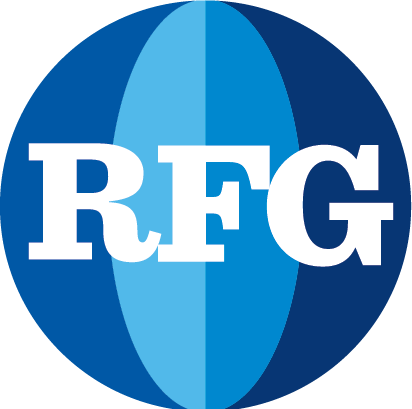
Dr. Michael Schneider, RFG Fellows’ Career Adviser and director of the Maxwell School of Syracuse University’s Washington Public Diplomacy Program, offers sage advice during these difficult times for our Fellows, alumni, and others in public service. If you have questions or ideas for future columns by Dr. Schneider please email Communications Manager Lauren Hertel.
When Bob Dylan wrote and sang, “For the times, they are a-changin” in 1963 he heralded a new era of civil rights reform, propelled by the rising generation of Boomers. Seen in today’s light, the reformers achieved much, but hardly all they had imagined. As the 60s aged and U.S. involvement in Vietnam grew, Dylan’s anthem showed more irony than success. Dylan’s message was essentially optimistic, somewhat akin to today’s “OK, Boomer…” comment. Today’s times post a far more gloomy challenge.
More than half a century later, we’re going through another transition with important impacts and implications for governance and public service. Public servants – like all Americans — are deeply affected by the spread of COVID-19, and also concerned about intensifying political and policy controversies as the election campaign heats up, the stock market collapses, and the country faces severe challenges to governance.
COVID-19 massively disrupts academe…
As of late March, with COVID-19 threatening the health of tens of millions Americans, American academic institutions have gone online. University officials are looking at ways to substitute ‘distance learning’ for gathering in classes. This is an awkward choice, but might lead to greater innovation in learning technology. The ‘chat room’ function of most systems might help save courses, by allowing students to consider issues in smaller break-out groups. For sure, new varieties of research, consultation, integration of information and opinions will emerge. Data Visualization, an increasingly important element for government and think tank work, and already used in many fields, is likely to become more important for academe.
… and the workplace – including the feds.
Government agencies at all levels are charting the many ‘what ifs’ of the disease, including how to fulfill public needs as more and more feds work remotely. One among many possible outcomes might well be a major effort by the USG, as well as states and cities, to markedly increase their communications technologies to both harden key sites and adopt new technologies, making it possible for more federal employees to have greater flexibility. After traditional USG processes are reinstated after the pandemic is over, I’d bet that communication flexibility, redundancy and sustainability will be even more prominent on the agenda of government reform.
We all should take another hard look at improvements in how government at all levels – and internationally – can work better together to solve dangers such as COVID-19. As John Hamre, CEO at CSIS, wrote recently:
“Some may think we can keep out everything we don’t like—infectious disease, immigrants, pollution, illegal drugs, counterfeit products, trafficking in vulnerable women and children—by closing our borders. The reality is we live in a modern age where the movement of people, goods, money, ideas, etc. spans the globe with relative speed and ease.
When I meet with the incoming cohort of CSIS interns, I always tell them that all the really complex problems in the world are horizontal, and all the governments are vertical. It is impossible to solve these horizontal problems only when they come to America’s shoreline. Now even the most ardent nationalists can see clearly that the Four Horsemen of the Apocalypse can’t be stopped by one country acting in isolation.
This pandemic also highlights an interesting dimension of international cooperation. We basically have two forms of governing internationalism—treaty-based and consensus-based. Treaty-based internationalism establishes institutions of cooperation, but we are seeing that world health organizations are not strong. Nations intentionally limit the strength and competence of treaty-based international institutions.
Consensus-based internationalism takes the form of varying and changing “coalitions of the willing”. Such coalitions are relatively easy to establish and can be abandoned when we don’t like the direction they are heading. But these coalitions of the willing are not normative, and they form a patchwork of cooperation, leaving gaping voids. What is fascinating about this crisis is to see a new form of international cooperation, and that comes from the vast and impressive horizontal professional networks that have emerged over the past 30 years. It is a bottom-up internationalism. In an era when politicians scorn expertise and disparage international organizations, we see an impressive network of true professionals working with others in distant lands to understand a complex problem and start to craft practical strategies to deal with it.
The coronavirus would exploit U.S. employment and healthcare gaps
Nextgov carries an interesting and troubling article, “The Problem with Telling Sick Workers to Stay Home,” from The Atlantic. What choice do most workers have if they’re pressured or feel responsible for going to work? Perhaps emergency federal funding for those forced out of work by the current health crisis will help.
The election and transition to a new administration also loom closer
The Partnership for Public Service has announced its quadrennial project on transitions to the next Administration. “Elections Mean Transition, Even if the Incumbent Wins,”says even if the Trump Administration emerges victorious next fall, experts agree there will be changes. There would likely be significant differences if a new Admin is voted into office, but the experts agree now is the time for agencies and USG employees to start thinking about options for change, no matter who wins in November. The Partnership interviewed transition teams from recent elections. It makes for wonky, but important, reading.
Volcker Alliance report weighs in for more attention to reform
A report authored by RFG Adviser and expert on government issues, Paul Light, calls for more attention to reform, not just new policy initiatives, if the Democratic Party hopes to win the Presidential race this coming fall. Light identifies four streams of thought in both parties –

He argues that public trust in government is so low that the Democrats will not be able to gain enough support with only ambitious new initiatives.
See https://www.volckeralliance.org/news/volcker-alliance-releases-report-how-americans-desire-government-reform-will-impact-2020 and an excellent summary from Paul’s commentary, “Six Ways the Demand for Government Reform Will Shape the 2020 Election,” for the Brookings Institution.
This report argues that “the rebuilder’s dilemma is a key to Democratic success in the 2020 election: No Democratic candidate can win the nomination without embracing the party’s appetite for almost everything the federal government provides. Nor can the party’s nominee defeat Trump without also embracing its high demand for very major government reform. If Democrats go too far in courting expanders, they could lose the rebuilders; if they move too far toward rebuilders, they could turn off expanders. ”
Slowing Commerce in China and around the globe, plummeting stock markets bode ill for the Thrift Savings Plan, BUT…
… think long and hard before pulling out your investment! This might/might not be a severe and long-lasting dip in the market, with serious consequences, especially for the elderly on fixed incomes. However, a ton of experience from investors of all kinds and every generation suggests that by the time the market drops, it’s too late to protect your investment. In addition, once sold, returning to that investment is only very rarely timed right. The wisdom of the investment sages is to stay on for the ride and expect in some future time the market will rebound. You might lose some years of growth, but the Thrift Savings Plan (TSP) is a long-term proposition. Thanks to broad economic growth and the “miracle of compound interest” (as Pat Moynihan dubbed it) you’ll most likely be better off, particularly if your TSP is cautiously invested in a mix of index funds reflecting the diversity of the market.
According to Government Executive:
“The common stocks of the Thrift Savings Plan’s C Fund had the worst performance last month, falling 8.24%. So far this year, the C Fund has lost 8.28%.
Small- and mid-size businesses in the S Fund lost 8.01% in February, bringing its 2020 losses to 8.58%. The I Fund, which is made up of international investments, fell 7.74% last month. So far this year, the I Fund has lost 10.25%.
The fixed income bonds in the F Fund gained 1.82% last month, bringing its gains this year to 3.77%. And the G Fund, which is made up of government securities, grew 0.13% in February. So far in 2020, the G Fund has gained 0.30%.
All of the TSP’s lifecycle (L) funds ended February in the red. The L Income Fund, designed for participants already making withdrawals, fell 1.52%; L 2020, 1.76%; L 2030, 4.65%; L 2040, 5.58%; and L 2050, 6.39%.
So far this year, the L Income Fund lost 1.51%; L 2020, 1.77%; L 2030, 5.08%; L 2040, 6.14%; and L 2050, 7.06%.”
Clearly COVID-19 has affected the markets, with little clarity this early in the advent of the disease as to if/when the market will rebound. Almost ten years of remarkable growth and a record decline in unemployment was bound to slow if not reverse sooner or later. Many media reports predicted a slowdown later this year or early next. As the Coronavirus spreads here and abroad, the alarms will continue, however, steady as you go…
… which is probably good advice in every aspect of your life right now!




